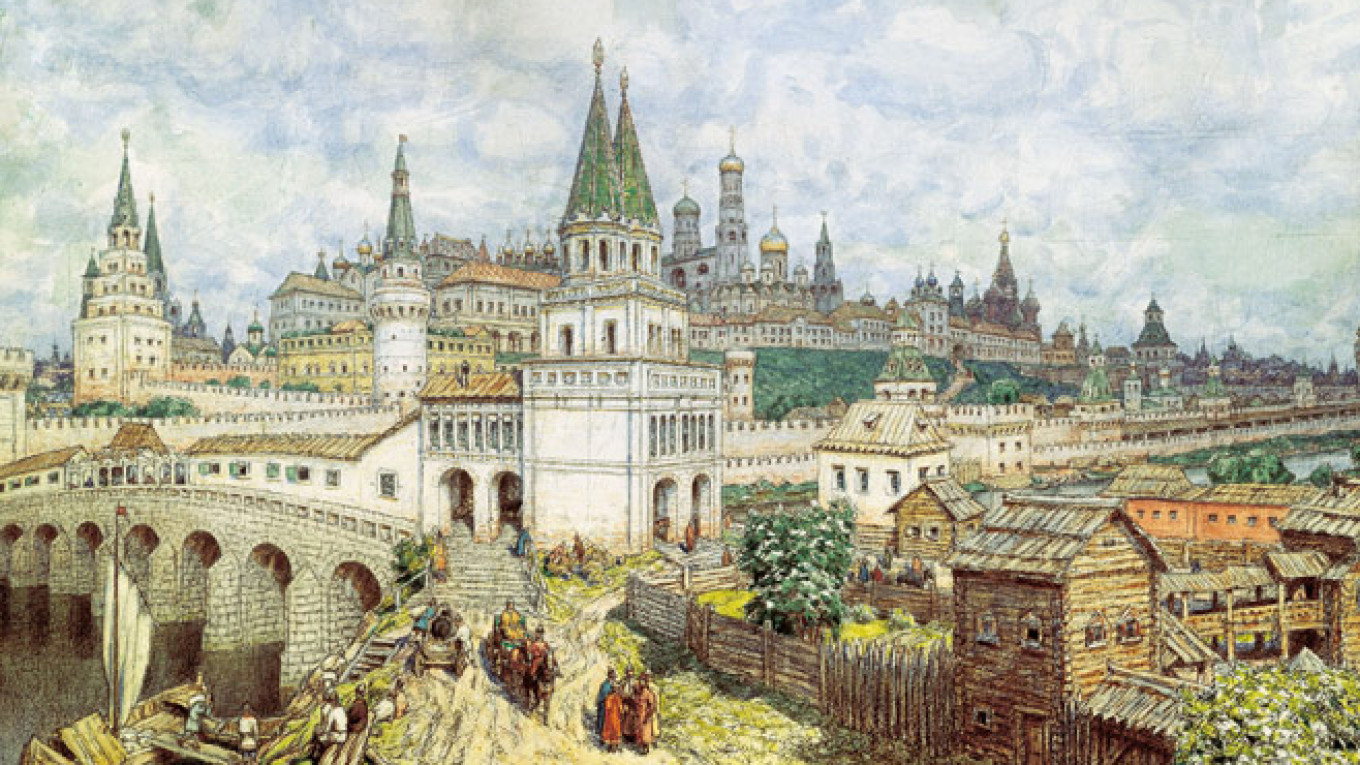Moscow's oldest road, thought to date back to the 12th century, has been unearthed in the city's central Zaryadie district, archaeologists said Wednesday.
The road is believed to have connected the old Kremlin and a wharf on the Moscow River, Leonid Belyayev, a department head from the Russian Academy of Sciences' archaeology institute, told The Moscow Times.
"We were very lucky to have reached the road. The district is full of the city's infrastructure lines and old archaeological excavation sites," Belyayev said.
As it is seen by archaeologists, the road consists of several layers of wooden pavements, he said. So far archaeologists have uncovered most of the 17th-century layer and in some spots have dug deeper to the late 15th century. The deepest layers are thought to date back to the 12th century, given that the Kremlin was established then, said Belyayev.
The road known as Velikaya ("The Large One") is not named on old city plans, Belyayev said, but it is mentioned in city chronicles.
The Zaryadie district, located between the Kitai-Gorod metro station and the Kremlin, is believed to be the oldest part of Moscow. In the 1930s and 1940s most of the district was demolished to clear the ground for a number of Soviet architectural projects, most of which were never completed. In the 1960s the massive Rossiya Hotel was built in the center of the district.
After the demolition of the hotel in 2006, archaeological excavations started, but the future of the district remained unclear until 2012, when a competition to remodel the former Rossiya grounds was won by design firm Diller Scofidio + Renfro, which also designed New York's celebrated High Line park.
A Message from The Moscow Times:
Dear readers,
We are facing unprecedented challenges. Russia's Prosecutor General's Office has designated The Moscow Times as an "undesirable" organization, criminalizing our work and putting our staff at risk of prosecution. This follows our earlier unjust labeling as a "foreign agent."
These actions are direct attempts to silence independent journalism in Russia. The authorities claim our work "discredits the decisions of the Russian leadership." We see things differently: we strive to provide accurate, unbiased reporting on Russia.
We, the journalists of The Moscow Times, refuse to be silenced. But to continue our work, we need your help.
Your support, no matter how small, makes a world of difference. If you can, please support us monthly starting from just $2. It's quick to set up, and every contribution makes a significant impact.
By supporting The Moscow Times, you're defending open, independent journalism in the face of repression. Thank you for standing with us.
Remind me later.


